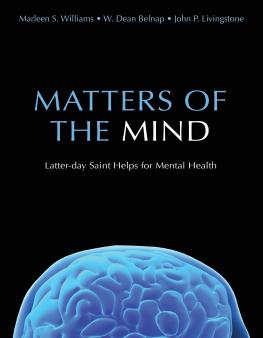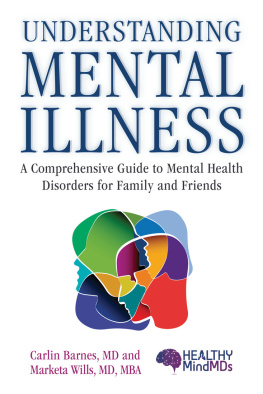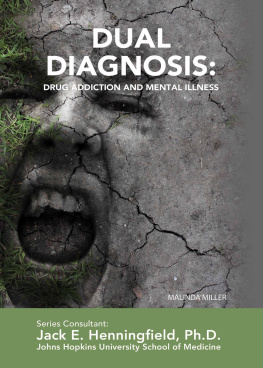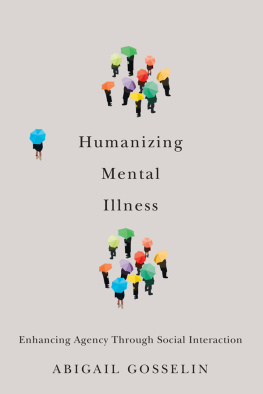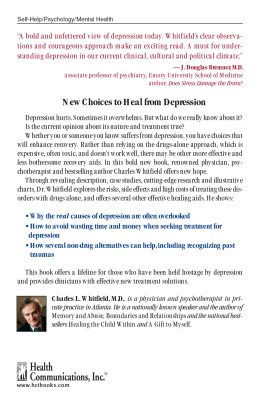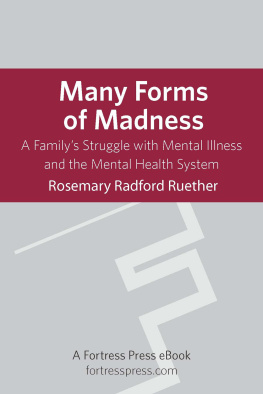Contents
Copyright 2012 Joe Pantoliano
All rights reserved. No part of this book may be used or reproduced in any manner whatsoever without the written permission of the Publisher. For information address Weinstein Books, 250 West 57th Street, 15th Floor, New York, NY 10107.
ISBN: 978-1-60286-231-9 (e-book)
First Edition, 2012
First Paperback Edition, 2013
10 9 8 7 6 5 4 3 2 1
For Nancy Sheppard Pantoliano, and the man who married us, Charlie Rocket
The mass of men lead lives of quiet desperation and go to the grave with the song still in them.
Attributed to Henry David Thoreau
ASYLUM
Hollywood Tales from My Great Depression:
Brain Dis-Ease, Recovery, and
Being My Mothers Son
Joe Pantoliano

WEINSTEIN
BOOKS
Praise for Asylum
Joey has written a brave, fascinating book. It is astonishing what people will put themselves through for the privilege of acting. Maybe we just cant help it. Tommy Lee Jones
Joey has opened himself up so that others can benefit from what he has discovered about mental illness. No one should miss this candid and richly told memoir. Jacqueline Lerner, Ph.D., Professor of Applied Developmental Psychology, Boston College
Bravo to this brave and beautiful book, which not only should be read by actors and others in the business but by anyone with a heart. Anne Jackson, Eli, Roberta, Peter, and Katherine Wallach
With honesty, humor, and integrity, Joey Pantoliano uses his life story to inspire hope that each of us can thrive despite emotional challenges and family turmoil. Joeys story exemplifies the fundamental human capacities for resilience and positive growth. Richard M. Lerner, Ph.D., Bergstrom Chair in Applied Developmental Science; Director, Institute for Applied Research in Youth Development, Tufts University
A must-read! Joey Pants gives us insights so valuable that one can only call his courage to share a blessing for all. Andy Garcia
A truly remarkable memoir! Joey shares his painful journey with unflinching candor, mixed with a liberal dose of humor. Patricia Hearst
Bravo! Joe Pantolianos very honest, moving, hilarious and tragic telling of a lifes journey is both profound and enlightening. Asylum will make anyone who reads it a more generous and understanding human being. Andrew Davis, Director of The Fugitive
A model of inspiration and courage for those who suffer from mental illness in silence to come forward and seek the life-changing help that is currently available. Robert Irvin M.D., Instructor of Psychiatry, Harvard Medical School
I am now the most miserable man living... Whether I shall ever be better I cannot tell; I awfully forebode I shall not. To remain as I am is impossible; I must die or be better...
I read those words aloud, but in a stage whisper so the passengers boarding past me wouldnt think I was talking to myself. From the luxurious embrace of my first-class seat, compliments of a flight attendant Id charmed on the way to business class, I held my cell phone up to my ear and waited for a response from my wife, Nancy.
A pregnant pause. Then Nancy said, Joe, did you just say awfully forebode?
Far from being the most miserable man living, at that moment I was actually the most grateful man on the plane. An ice-cold bottle of water between my legs, my laptop on my foldout table, I was on my way home to my beautiful wife of twenty years.
Nancy must have thought Id lost my mind. Well, I had. After all, I was returning from a nine-day Stomp the Stigma tour in Iraq, where I was comically billed as the Bob Hope of the Mentally Challenged. I took the trip against the wishes of several of my children, my friends, my doctor, and even my lawyer. My agent supported it (anything for a buck! da prick!), so did Nancy and my son Marco, bless them. Oh, Nancy, sweet, darling Nancy. Everyone was so scared, me most of all! The whole thing was crazy. Me flying around in Black Hawks. Then aboard C-130s, cargo planes, flying into Baghdad in a corkscrew rotation, experiencing weightlessness, as if I were John Fn Glenn! I even broke bread with a four-star general! But at this moment my mind felt more intact, and I felt more serene than ever before.
Nancy had called knowing I was on my way home and she was eager to hear how the trip from Baghdad had gone.
Hey, Joe, everything OK?
Yeah babe, everythings A-OK. Thats military talk, hon. Nancy, if we were on Skype youd see my canary-eating grin. I was going through my e-mails before Nancy called and I was in the middle of reading an article sent to me by a friend. It was about a man and his lifelong depression. And it made me really happy.
Nancy and I chatted and said goodbye. I reread the words: Whether I shall ever be better I cannot tell; I awfully forebode I shall not. The source of the quotation had surprised me: Abraham Lincoln.
A few years before this trip, I was diagnosed with the same thing Lincoln suffered: clinical depression, or melancholia, as it was called in Lincolns time. Melancholia... a charming term.
Im familiar with his feeling of endless misery. Ive lived on that same bleak block for much of my life. I, too, reached the point of saying, either this shit gets better, or it ends. Of course, I never put it as eloquently as Lincoln; my usual brand of expression was brewed in a world where the importance of something said is directly proportional to the number of four-letter words needed for a punch line.
The military invited me to Iraq because of nkm2.orga.k.a. No Kidding, Me 2!the organization I created to end the stigma and shame around brain dis-ease, and create equal rights for the All-American Brain.
Since 2002, the suicide rate among our soldiers has grown 350 percent. Suicides have actually outnumbered combat deaths in Iraq and Afghanistan since at least 2009and thats not counting the failed attempts. Let me repeat that so it really sinks in: suicides have outnumbered combat deaths. From 2005 to 2010, active service members took their own lives at a rate of approximately one every 36 hours. The Department of Veterans Affairs estimates that a veteran dies by suicide every 80 minutes. Thats a lot of shame, and that is why I went: to take shame out of the closet, to meet with hundreds of our men and women stationed there. I went with my two-person team: psychiatrist Dr. Bob Irwin, and actress and model Lisa Jayhow else could we get the GIs to show up! Dr. Bob talked to the troops about the importance of sharing feelings rather than keeping the secrets inside, festering like an emotional cancer of the soul. They could tell a battle buddy and surrender to the feelings, getting their peace of mind back. Surrender to win. I shared sad and funny stories about my struggles with depression and I listened as they told theirs.
The common thread I have with so many of those soldiers is that feeling of embarrassment and shame. And thats why Im writing this book: to eliminate the shame and obliterate the blame. Thats why Lincolns words made me happy. I recognized myself in them. Whats the first thing we think about when it comes to Abe Lincoln? That he was depressed? Had melancholia? Hes honest Abe, the guy whose face is carved into the side of Mount Rushmore. He should be our poster boy to abolish bigotry, discrimination, and shame. The guy who wrote the Gettysburg Address on the back of a fucking napkin, and was dyslexic to boot! Him! He should be the 2012 poster boy for the equal rights of our all-American brain, for Christs sake. One in four Americans live with a brain dis-ease, just like the one in four Americans up on that rock.
Next page

